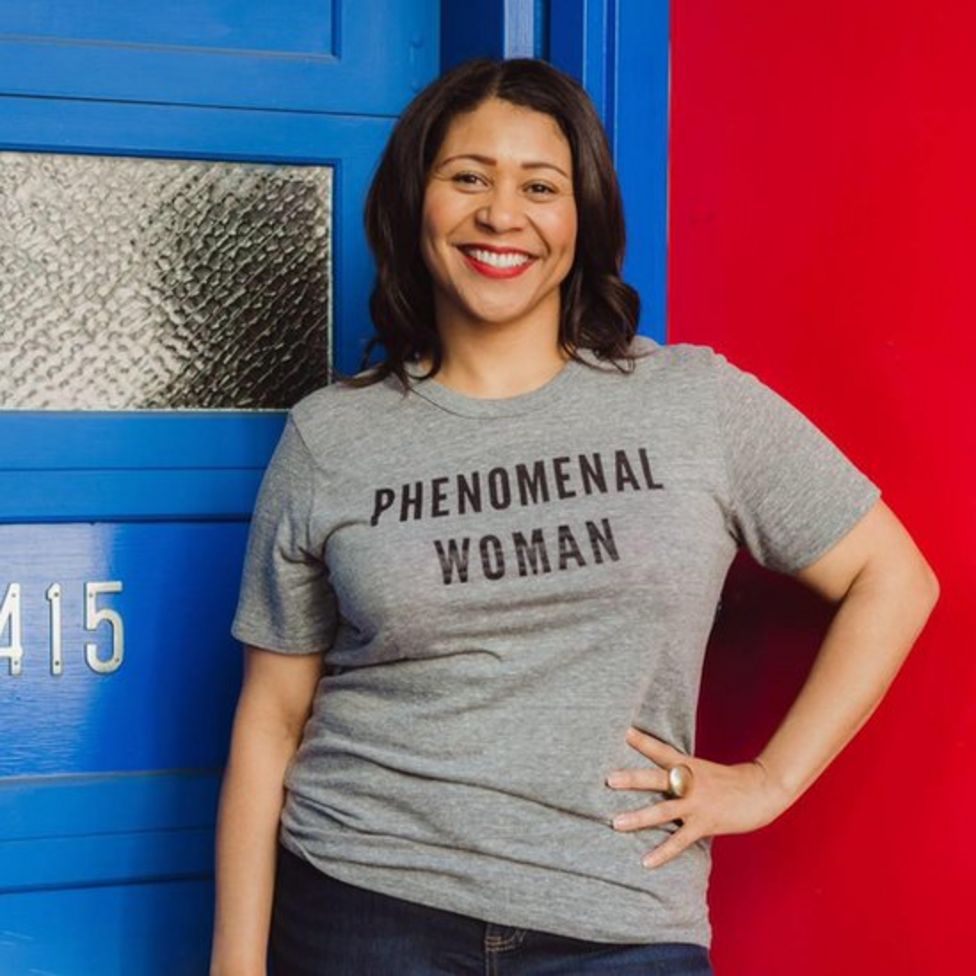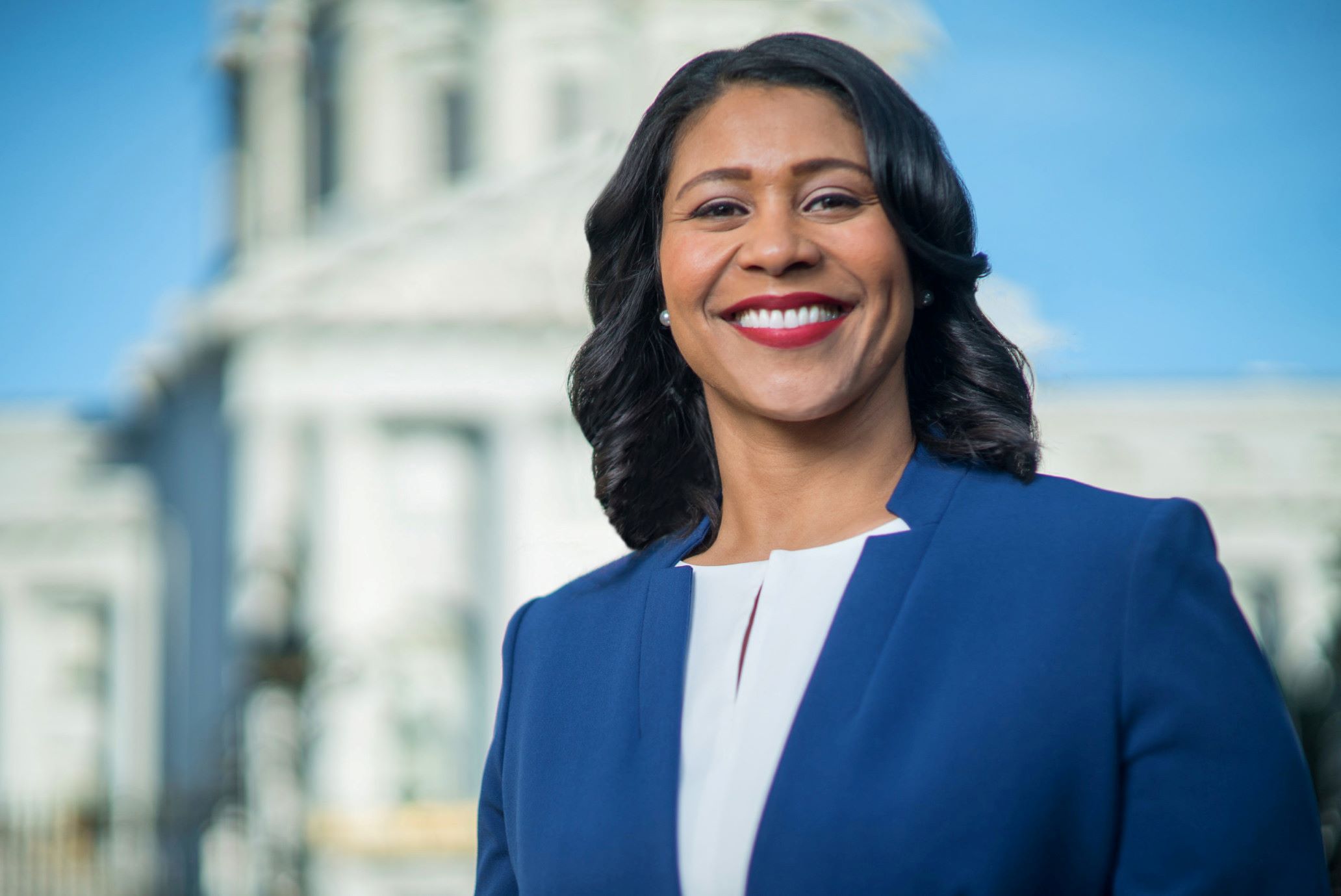What does it truly mean to lead a city as iconic and complex as San Francisco, and what becomes of a legacy when the voters' trust erodes?
London Breeds tenure as the 45th mayor of San Francisco, from 2018 to 2025, offers a compelling case study in the highs and lows of modern American politics, a narrative of ambition, achievement, and, ultimately, a humbling defeat.
Born London Nicole Breed on August 11, 1974, this American Democratic politician carved a path through San Francisco's political landscape, marked by both groundbreaking firsts and the harsh realities of governing in a city grappling with significant challenges. As the first Black woman and the second woman to hold the city's highest office, Breeds journey began long before her mayoral bid. Prior to her time in City Hall, she served as a Supervisor for District 5 and then as President of the Board of Supervisors from 2015 to 2018. This foundation laid the groundwork for her mayoral campaign, a campaign that would see her navigating the complexities of a city in constant flux, the pressures of a global pandemic, and, ultimately, the scrutiny of a demanding electorate.
- Unveiling The Enigma Of Japanese Akame Reiran
- Unveiling The World Of Hdhubflix Your Goto Streaming Platform
| Category | Details |
|---|---|
| Full Name | London Nicole Breed |
| Date of Birth | August 11, 1974 |
| Political Affiliation | Democratic |
| Positions Held |
|
| Key Achievements | (This section is intentionally left blank for now, it will be populated throughout the article) |
| Areas of Focus/Priorities | (This section is intentionally left blank for now, it will be populated throughout the article) |
| Defeated in | 2024 Mayoral Election, by Daniel Lurie |
| Reference Website | Wikipedia |
The seeds of her political ascent were sown long before she occupied the mayors office. Her formative experiences in the city, including an internship with former Mayor Willie Brown, provided her with a deep understanding of San Francisco's political machinations. This practical education, combined with her inherent drive and charisma, propelled her to the forefront of local politics. Yet, the journey from a promising political newcomer to a seasoned leader wasn't without its challenges.
The year 2018 marked a significant turning point in San Francisco's history. On July 11th of that year, London Breed assumed office, inheriting a city already grappling with issues that would define her tenure: homelessness, soaring housing costs, and the complex interplay of economic prosperity and social inequality. Her vision, as she stepped into the role, was undoubtedly ambitious a desire to address these long-standing problems head-on while simultaneously fostering a city that remained a beacon of innovation and cultural diversity. San Francisco, in its essence, is a city of contradictions. A place of breathtaking beauty juxtaposed with stark social disparities, a hub of technological advancement existing alongside persistent urban struggles.
Breed's time in office coincided with the unprecedented challenges of the COVID-19 pandemic. This global crisis forced cities worldwide to adapt, and San Francisco was no exception. The city's response to the pandemic, from public health measures to economic relief efforts, fell squarely on her shoulders. The decisions made during this critical period would undoubtedly shape her legacy, as she navigated the delicate balance between public safety and economic recovery. The weight of leadership during such trying times is immense; Breed had to make decisions that balanced the need to protect public health with the economic realities of a city dependent on tourism, hospitality, and the tech industry.
As the city emerged from the immediate crisis, new challenges emerged. The post-pandemic landscape brought with it a resurgence of crime, a worsening homelessness crisis, and a palpable sense of unease amongst residents. Breed, determined to address these issues, implemented various initiatives. She championed policies focused on public safety and targeted programs to combat the homelessness crisis. Yet, despite these efforts, public perception began to shift. Voters expressed growing concern over the state of the city. The streets were visibly struggling, and the gap between the haves and have-nots seemed to widen, creating frustration amongst the populace.
The 2024 mayoral election became a referendum on Breed's leadership. Her challenger, Daniel Lurie, a Levi Strauss heir and nonprofit founder, tapped into the discontent, promising change and positioning himself as an outsider untainted by the complexities of City Hall. The election campaign was a battleground of contrasting visions. Breed, highlighting her experience and commitment to the city, faced a surging tide of public dissatisfaction. Lurie, on the other hand, promised a fresh perspective, and pledged to confront the city's intractable problems with renewed vigor. He blamed Breed for the city's troubles, capitalising on the public's angst with the current situation.
The outcome of the election was decisive. On November 5, 2024, voters delivered their verdict: Breed lost her bid for reelection. This defeat marked a significant moment in San Francisco's political history. The city, known for its progressive leanings, had sent a clear message. The voters wanted change, and they were willing to turn to a new leader to achieve it. The results were a stark reflection of the voters' anger over the issues that plagued the city. The anger over crime, homelessness and the general chaos that was visible on the streets of the city took a toll on her image.
As the final ballots were counted, and the reality of her defeat sank in, Breed conceded the race. While she hadn't conceded earlier, the momentum had shifted dramatically. The numbers spoke for themselves. On Thursday, she acknowledged Daniel Lurie's victory, effectively signaling the end of her time in office. The transition was underway; the city was on the cusp of welcoming a new mayor. Her term officially concluded on January 8, 2025, after more than six years at the helm. During that time, she navigated the city through unprecedented challenges, leaving a lasting imprint on San Francisco's social and political fabric.
In the final months of her tenure, Breed found herself reflecting on her time in office. Despite the setback of losing the election, she has expressed a deep sense of gratitude for the opportunity to serve the city she loves. As she prepared to leave office, Breeds reflections offered a glimpse into her perspective on her achievements, failures, and the lessons learned from navigating the turbulent waters of San Francisco politics. One of the key things that insiders are saying is that Breed failed to maintain the relationships that were needed to survive the stiff political winds. She had, according to these reports, alienated several members of the progressive voting bloc, making it difficult to garner support and push her initiatives forward. At the last state of the city speech, Breed made it clear that she was running to the right, which may have had a negative impact on her chances of reelection.
Breeds legacy is complex and multifaceted, a tapestry woven with threads of both triumph and tribulation. Her time as mayor will undoubtedly be viewed through various lenses, dependent on individual perspectives and political alignments. Supporters may highlight her efforts to address critical issues, her commitment to public service, and her resilience in the face of unprecedented challenges. Critics may point to areas where her leadership fell short, the policies that didn't produce the expected results, and the widening social and economic divides that persisted during her tenure.
One of the significant accomplishments during her time in office was her work in the Tenderloin district, where she implemented various programs and initiatives aimed at improving the quality of life for residents. At the Glide Memorial Church, where she received an outpouring of gratitude during her last public service, Breed was credited for making it a cornerstone of both her personal journey and her mayoral legacy. Her efforts to reform the city's public safety record were also noteworthy. When the 49ers player, Ricky Pearsall, was shot during a robbery attempt in Union Square, Breeds critics, including Mark Farrell, attacked her public safety record. The efforts to crack down on homelessness and crime were, ultimately, not enough to save her from the wrath of voters frustrated by years of disorder.
Breed's tenure also highlighted the evolving dynamics of San Francisco's political landscape. As the city continues to grapple with significant social and economic disparities, the electorate is growing more and more demanding. The challenges faced by the city, from homelessness to crime, call for innovative solutions, and the electorate will hold their leaders to account. Her time in office underscored the ever-present need for political leaders to adapt to the needs and desires of the city. The ability to build coalitions, navigate conflicting interests, and maintain the trust of the public is vital for success in the San Francisco political environment. The city's voters demonstrated that they were ready for a new approach, a new direction, a new leader, which led to the victory of Daniel Lurie.
The story of London Breeds time as mayor of San Francisco is a testament to the demanding and often unpredictable nature of modern American politics. Her journey from an ambitious political hopeful to a seasoned leader, and finally, to a defeated incumbent, offers valuable insights into the challenges of governing in a complex urban environment. In a city like San Francisco, where the social and political currents shift constantly, the ability to adapt, connect, and maintain public trust is paramount. Breeds legacy will undoubtedly be the subject of ongoing discussion, analysis, and debate for years to come. But the core message remains clear: Leadership in a city like San Francisco demands vision, resilience, and a deep understanding of the city's soul.
The outgoing mayors office, where wedding ceremonies were taking place just outside her door, was a scene of both activity and introspection. Curious onlookers, a symbolic reminder of the city she would soon leave, hovered near the entrance as Breed's staffers began to pack up. This scene of departure and transition, the end of an era, marked a significant moment in San Francisco's history, a city forever changed by the leadership of London Breed.


